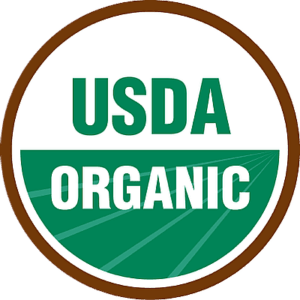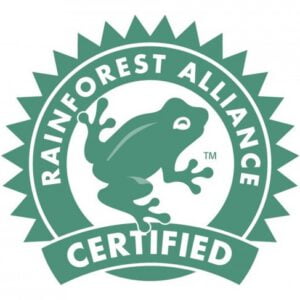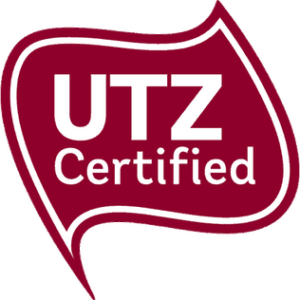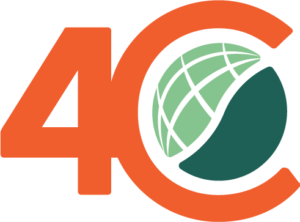COFFEE CERTIFICATIONS
COLLECTIONS OF COFFEE DEVOTESS
For the sustainable development of the coffee industry, which benefits all individuals in the supply chain and creates true value, Coffee Certifications are built and developed. This is a collection of coffee devotees.
FAIR TRADE CERTIFIED

There are three major certifiers of fair-trade products in the United States: Fair Trade USA, Fairtrade America (US member of Fairtrade International), and IMO Fair for Life. Collectively, these certifications work to help build an economy that supports a better life for farming families through market access for marginalized producers, sustainable and equitable trading relationships, and advocacy and consumer awareness. Coffee purchased from certified cooperatives must be at or above the Fair Trade Minimum Price as set by Fair Trade International.
Fair Trade Certified works for social, economic and environmental motives as well as organization of cooperatives. Strong promotional efforts target consumers and businesses through awareness campaigns, media and on-product labelling. Annual inspections are taken place by independent and annually trained Fair Trade inspectors.
USDA ORGANIC

Organic is the most heavily regulated and closely monitored food system in the United States. The USDA Organic certificationwas put in place to create a verifiable sustainable agriculture system that produces food in harmony with nature, supports biodiversity, and enhances soil health. Coffee sold as certified organic in the United States must be produced under standards established by the USDA’s National Organic Program. Requirements of the organic seal include abstaining from any use of prohibited substances on the land for at least three years. Prohibited substances include most synthetic pesticides, herbicides, and fertilizers. Minor nonorganic ingredients used in processing must come from a list of approved substances, known as the “National List.” Both producers and buyers are subject to annual fees for inspection and certification.
The environment, the farm and production standards are the criteria for the activity of USDA Organic. This certification is inspected annually, from the experts of the organization.
RAINFOREST ALLIANCE

The Rainforest Alliance (RFA) seal indicates that a farm has been audited to meet sustainability standards relating to environmental, social, and economic factors. To become certified, producers must meet criteria set by the Sustainable Agriculture Network (SAN), a coalition of conservation groups. SAN standards are built on principles of sustainable farming, including biodiversity conservation, improved livelihoods and human wellbeing, natural resource conservation, and effective planning and farm management systems. Only 30 percent of a producer’s coffee beans must meet RFA conditions for the seal to be used on packaging. Audits are conducted on an annual basis by trained auditors, including teams of biologists and agronomists authorized and monitored by SAN.
The Rainforest Alliance CertifiedTM program is based on the fundamental principles of sustainable agriculture including: best management practices; conservation of natural resources, ecosystems and wildlife; workers rights and benefits; and benefits to local communities.
SMITHSONIAN BIRD FRIENDLY

Developed by ecologists at the Smithsonian Migratory Bird Center (SMBC) to ensure tropical agroforests are preserved for migratory birds, this certification has the most robust shade and habitat standards of any certification. Criteria includes a canopy at least 12 meters high where the dominant species is native. The canopy must also consist of at least two strata layers of vegetation, include ten woody species dispersed throughout the production area, and still provide a minimum of 40 percent shade cover after pruning. The coffee must also be certified organic. Inspections take place every three years, coordinated with organic inspection.
UTZ CERTIFIED

Utz emphasizes transparency and traceability in the supply chain, as well as improved economic performance through productivity and farm professionalism. Certification requires compliance with mandatory control points; the number required increases over a four-year period.
Note: The Utz certification will merge with the Rainforest Alliance at the end of 2017. The merged organization will be called the Rainforest Alliance and will focus on issues in climate change, deforestation, poverty, and unsustainable farming. By creating a single certification, the two organizations hope to simplify the certification process for farmers and empower companies to build more responsible supply chains, more efficiently.
4C COMMON CODE

The 4 C Common Code label began in 2003 as a public-private partnership project by the coffee industry and the German development cooperation. Its purpose is to initiate a multi-stakeholder dialogue for defining a mainstream code for conduct for sustainability.
At the end of 2009, 4C announced 2009 growth of more than 150% in coffee sales. An impressive number for coffee sales. This label is designed to provide operators in the coffee marketing chain with sustainable livelihoods, with a social, environmental and economic dimension
The following code focuses on the below precepts:
“Coffee production can only be sustainable provided it provides decent living and working conditions for the farmers, their families and their employees.”
“Protection of the environment, for example primary forests, and the conservation of natural resources such as water, soil, biodiversity and energy are essential components of the sustainable production of coffee and its processing after harvest.”
“Economic viability is the basis of social and environmental sustainability.”














